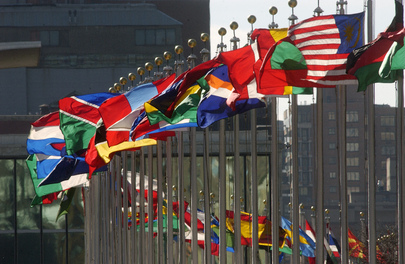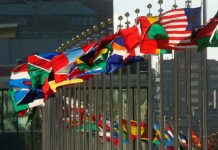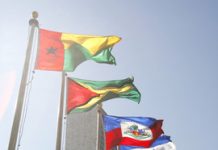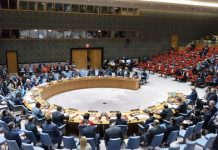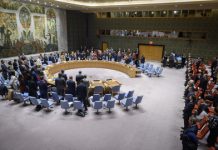The United Nations supports the principle in multiple ways, from addressing economic inequality to access to education, healthcare, and the protection of human rights, with the aim of creating a world where everyone has the opportunity to thrive.
Social justice is for everyone, which is why the UN pays attention to the needs of particularly marginalized and vulnerable communities, such as refugees, indigenous peoples and those living with disabilities.
Social justice encompasses a wide range of issues which are highlighted as part of World Day of Social Justice marked annually on 20 February.
Equity, solidarity, human rights
The UN definition of social justice is “an underlying principle for peaceful and prosperous coexistence within and among nations.” This can be interpreted as a world in which societies are based on the principles of equality and solidarity, understand and value human rights, and recognize the dignity of every human being.
The five key principles of social justice are often defined as:
- the recognition that different people have different needs and circumstances (equity),
- ensuring that everyone has access to the resources and opportunities they need to succeed (access),
- enabling all individuals to play in role in the political, economic and social life of the communities (participation),
- protecting the human rights of all individuals (rights) and
- valuing and respecting differences between people, such as race, gender, and sexual orientation (diversity).
Social justice is a cornerstone of the United Nations’ mission to promote peace, security, and human rights worldwide and is enshrined in the 2030 Agenda for Sustainable Development, an international blueprint for peace and prosperity.
The Agenda is broken down into 17 ambitious Goals, which are due to be achieved in the next five years. Some progress has been made, particularly on the reduction of extreme poverty, and improved access to essential health services, but overall they are not on track.
However, the Goals have been useful in providing UN Member States with clear, objective targets designed to improve the lives of their citizens.
The Sustainable Development Goals form the bedrock of social justice.
Promoting decent work
One of the primary ways the UN supports social justice is through the promotion of decent work and economic opportunities.
The International Labour Organization (ILO), a specialized UN agency, plays a crucial role in this area. The ILO’s Decent Work Agenda focuses on creating jobs, guaranteeing rights at work, extending social protection, and promoting social dialogue.
By advocating for fair wages, safe working conditions, and the elimination of forced labour and child labour, the ILO helps ensure that workers worldwide are treated with dignity and respect.
A banana grower harvests his crop in Manicaland, Zimbabwe.
The promotion of decent work is one of the Sustainable Development Goals of the 2030 Agenda: Goal 8 (SDG 8) calls for the promotion of inclusive and sustainable economic growth, employment and decent work for all.
Advancing gender equality
Gender equality is another critical aspect of social justice that the UN actively promotes. It is a fundamental human right and is critical to a healthy society.
UN Women, the United Nations entity dedicated to gender equality and the empowerment of women, works to eliminate discrimination against women and girls, empower women, and achieve gender equality, through initiatives such as the HeForShe campaign and the Spotlight Initiative.
A community activist in Cabo Delgado, Mozambique provides information on preventing child marriage and gender-based violence.
SDG 5 calls for the achievement of gender equality and the empowerment of all women and girls: UN-backed commitments have seen declines in some problem areas, such as child marriage and female genital mutilation (FGM), but many women and girls continue to face barriers to their economic and social empowerment.
Ensuring access to education
Despite some recent progress in the percentage of students attaining a basic education, an estimated 300 million children and young people will still lack basic numeracy and literacy skills by 2030.
Students in Chhattisgarh, India, attend a robotics class.
Education is a powerful tool for reducing inequalities, reaching gender equality and achieving social justice, and the UN is committed to reaching SDG 4, which focuses on ensuring inclusive and equitable quality education and promoting lifelong learning opportunities for all.
The UN also supports educational and training programmes aim to build tolerance, understanding, and resilience among young people, helping them become advocates for social justice.
Protecting human rights
The protection of human rights is at the heart of the UN’s mission, and one of its greatest accomplishments is the drafting and adoption of the groundbreaking Universal Declaration of Human Rights, which paved the way for a comprehensive body of human rights law.
The Office of the High Commissioner for Human Rights (OHCHR) works to promote and protect the human rights of all people, monitoring and reporting human rights violations, providing technical assistance to governments, and supporting the work of human rights defenders.
The work of the OHCHR is crucial in ensuring that individuals can live free from discrimination, violence, and oppression.
The SDGs focus on eliminating poverty and providing people with opportunities to prosper.
- Since 2008 World Day of Social Justice has been celebrated annually on 20 February, following a declaration by the General Assembly.
- The Day was created as a reminder of the need to build a fairer and more equitable world, and to combat unemployment, social exclusion and poverty.
- This year’s theme is “Strengthening a just transition for a sustainable future,” acknowledging the need to ensure that the move towards low-carbon economies benefits everyone, especially the most vulnerable.
- The International Labour Organization (ILO) is marking the occasion with a series of events held in major cities around the world.
Source of original article: United Nations (news.un.org). Photo credit: UN. The content of this article does not necessarily reflect the views or opinion of Global Diaspora News (www.globaldiasporanews.net).
To submit your press release: (https://www.globaldiasporanews.com/pr).
To advertise on Global Diaspora News: (www.globaldiasporanews.com/ads).
Sign up to Global Diaspora News newsletter (https://www.globaldiasporanews.com/newsletter/) to start receiving updates and opportunities directly in your email inbox for free.


